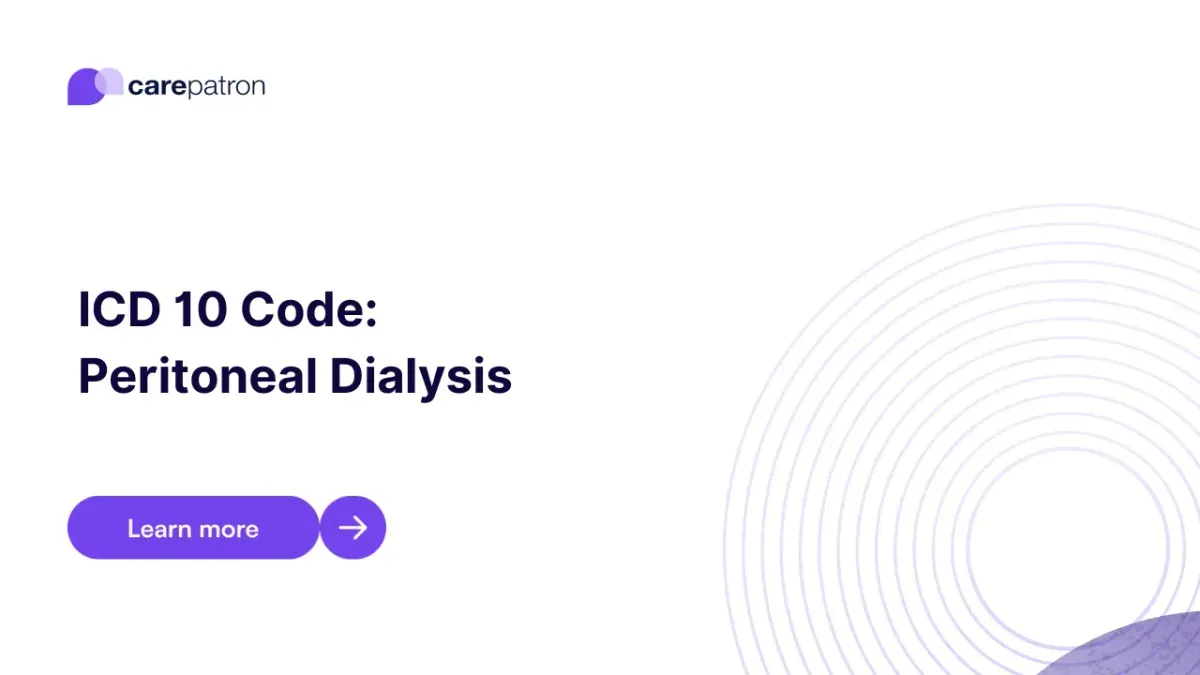
Peritoneal Dialysis ICD-10-CM Codes
Read this short guide and learn about peritoneal dialysis ICD codes you can use.
Use Code
Commonly asked questions
Yes. But we don’t recommend using them because they are also considered invalid.
To confirm how effective the peritoneal dialysis is, healthcare professionals will conduct a clearance test or a peritoneal equilibration test.
Yes. Peritoneal dialysis can cause hernias and weight gain. Over time, this type of treatment might become less effective, too. Once that happens, it’s best to switch to hemodialysis.
EHR and practice management software
Get started for free
*No credit card required
Free
$0/usd
Unlimited clients
Telehealth
1GB of storage
Client portal text
Automated billing and online payments
